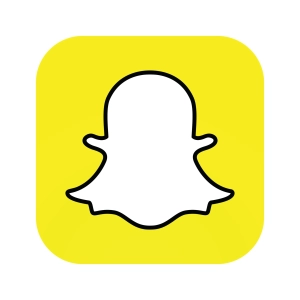Messaging Apps
Originally Posted 3/7/23. Last updated: 2/1/25

Introduction
The goal of this post is to talk about some options for Messaging Apps, what makes them different, and some other factors that go into which ones you should use. It's worth mentioning that there are many, many different messaging apps out there, and I am not familiar with all of them. I did want to get my thoughts out on a few of them though.
Understanding how they work
A messaging app allows you to send a message to another person. It's pretty straight forward, but there's a couple of different ways to send a message from person a to person b.
- SMS/MMS- This is the standard used by phones when you use your texting app (mostly). SMS is for messages that are just text, and MMS is for messages that have a photo or video component. The perk of using SMS is that you don't need data to send the message, only cell service. This is great if you don't have enough reception for data to kick in, if you don't have data to begin with, or you have an older phone. The main drawbacks are limited functionality, character limits, and it's possible for texts to send out of order.
- iMessage- This is exclusive to Apple Devices (iPhones primarily). When texting other iPhones, rather than using SMS or MMS, Apple devices will send the message in Apple's own proprietary messaging standard. iMessage uses data to send the messages when it can, so you typically need an internet connection for this to work properly. The main benefit is it allows a lot more functionality, allowing things like liking the message, sending better photos/videos through text, and a lot of other things. The main downside is since this is an Apple exclusive technology, it doesn't play nice when texting other phones. It'll still make sure the message gets through, but it's usually a worse experience for whoever isn't using the Apple device.
- RCS- This is a standard that is the next step up from SMS/MMS. Primarily being implemented on Android phones, this allows texts between Android phones to act much more like how iMessage does between iPhones- you can react to messages, get read receipts, and other quality of life changes. The biggest drawback is that this requires a data connection, though your phone will offer to switch back to SMS if you your service isn't good enough to send the message via RCS. The other thing is, at the time of writing (and to my knowledge), Apple has not yet implemented support for RCS, so while Android to Android and iPhone to iPhone largely have the same text functionalities, Android to iPhone/ iPhone to Android texts are severely lacking in functionality.
- Over the Internet- I wasn't sure what else to call this category, however what I'm trying to get at is there are a lot of messaging apps that just require a data connection to work. These apps are built by whomever and use the internet to transmit messages between people. The benefit of this is reliability as devices can confirm what order messages need to be sent and if they've been received or not. Another benefit is features are seemingly only limited by the creativity of whoever is coding the apps. The main drawback is you need an internet connection for these apps to work.
Common Messaging Apps
In this section, I'm primarily going to be covering Over the Internet apps, as your phones default texting or iMessage app is good enough for standard texting. Also to note, iMessage provides a lot of the functionality of these Over the Internet app, which is why a lot of people just use iMessage.

Snapchat
I graduated college in 2021, and during my college years (and even now), Snapchat was an extremely popular way of messaging people. The main selling point for Snapchat is that messages disappear after a certain amount of time. The sense I got from talking with people is it was also viewed as a less risky way to give someone your contact information. What I mean is, usually to message someone on other social media apps, you'd have to allow them to see your full profile. If you don't know someone that well yet, you might not want them to see your posting history or just other info that could be found on social media. On top of that, if someone was being creepy or gave you reason to want to block them, it was really simple to just do so. The app also allows posting of Videos/ Photos other people can see, so it was a nice all in one app for people.
Personally, I always disliked Snapchat as I did not like how messages disappeared after a certain amount of time. I will often forget about something and with most messaging apps I can go and look back at the history to find something. While snapchat does allow you to manually save messages, since this is not the default it was just annoying to me. On top of that, I primarily message from my computer, and there wasn't a way to do so with Snapchat (though I believe there is now)
Facebook Messenger
Facebook Messenger is easily the next most popular messaging service I use. The biggest draw to it is that most people have a Facebook (though younger generations are starting to stay off of it more). The app is easy to use, you can access messages from both a computer and your phone, and they're constantly adding new features. The biggest drawback to Facebook messenger is security, which I'll go into further below


While whatsapp is fairly popular in the US, it's much more popular in the world abroad. The biggest appeal, as I understand it, is that the app is free and allows for texting, calling, video chatting, etc. In certain parts of the world, standard texting (Via SMS) can still be expensive, so having an app that can send over the internet for free is worthwhile. The biggest drawback (to me) is the security aspect. While it is end to end encrypted (which I'll go into further below), it is owned by Facebook (Or, I should say, Meta).
Signal
Signal is not as popular as the apps mentioned above, however I wanted to bring it up because it's currently my go to messaging app and popular among people concerned with security. The biggest draw for Signal is that it is end to end encrypted which provides security, as well as it's funded by a Non-profit whose goal is to make sure the app stays secure. The biggest drawback is Signal is not as flashy as the other services, and messages are lost whenever you get a new device.
Update 2/1/25:Signal is rolling out an update to let you transfer messages to a new device.

Honorable Mentions
- Telegram- Also privacy focused, however end to end encryption isn't the default. If I remember correctly, how Telegram is funded is also a bit more shaky, though I can't remember exact details or find anything definitive on that. The plus to Telegram though is it tends to have more features than Signal.
- GroupMe- This is great if you have a group of people who have mixed preferences on using apps or texting. If someone has the app, they can access extra features and message people normally. If a user doesn't have the app, it just sends them a regular text message that they can respond to. This came in really handy for group projects in college or a couple of group chats I've had over the years.
End to End Encryption
I've mentioned it with a couple of the apps above, but if security/privacy is a concern of yours, you want an app that is end to end encrypted. What it does is as your phone (or device) sends a message, it is encrypted so that no one (not even the messaging service themselves) can see the message. The only person (or people if in a group chat) that can see the message is whoever you sent the message to. Their phone has the information needed to decrypt the message. This of course doesn't prevent someone from having access to your messages if they had access to a device with the messages on it, but it means it's near impossible for others to spy on what you're talking about, or for companies to have chat logs of your conversations. One nice part about Signal, from a security perspective, is if the app is deleted from your phone (or, you get a new phone), all previous messages are gone.
Why is this important?
One of the reasons I wanted to write about this topic is because lately, I've been recommending to as many people as I can to switch over to Signal. Recently in the US, Roe V. Wade has been overturned. Roe V. Wade was a Supreme Court case that helped make abortions legal. Recently, the US Supreme Court has overturned the case, meaning it is up to individual states to set laws on if abortion is legal or not. Some states, such as Vermont, have made it so abortion rights are cemented in the state constitution. Other states, have started implementing laws to make abortions illegal. At the time of writing, South Carolina seems to be the most recent.
The reason that is relevant to messaging apps, is Facebook has already shown that they will hand over chat records to authorities. Google seems to also be doing so, though more so with user data than text messages. This mixed with certain states wanting to be able to prosecute people if they leave to get an abortion in an abortion legal state, makes me very concerned about what information these tech giants have on me/ others. Google is especially concerning given how much raw data they have on pretty much everyone. If you or a loved one needs to talk about these sort of issues, I strongly recommend using a service like Signal to do so. As mentioned above, WhatsApp is also end to end encrypted, however given it's owned by Facebook, it's a bit questionable how safe those messages really are.
Final Thoughts
In today's modern age, it's hard to be completely "off the grid" or to not give up any data about yourself. It's a lot of choosing what sort of information you're willing to give up for the benefit of convenience. One easy example of this is location services- I like my phone being able to know where I am so that I have accurate Google Maps information, as well as accurate weather and have it suggest local events and such. However, this means Google (Because I have android) has almost constant data about where I am. I have a ton of Google Homes all around my apartment to use with smart lights and to use as smart speakers. For me, for whatever reason, I want to make sure that the conversations I'm having with friends stays between me and friends, and not some tech giant.